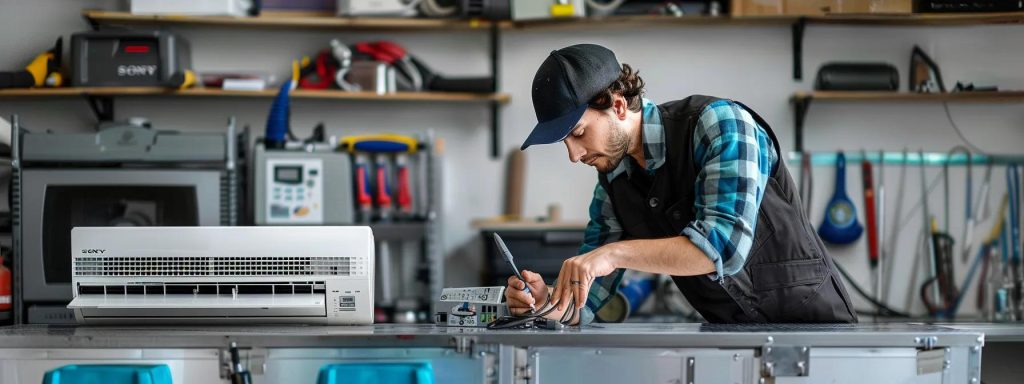
How to Handle Common AC Repairs in Merrillville Indiana
In Merrillville, Indiana, ensuring that your air conditioning (AC) system functions efficiently is essential for maintaining comfort during the hot summer months and providing reliable indoor air quality year-round. Homeowners often face issues such as insufficient cooling, unusual noises, water leaks, or units that run continuously, which not only impact comfort but can also lead to higher energy costs and potential damage if left unattended. This article explores the common AC problems faced by Merrillville residents and provides a comprehensive guide on troubleshooting, repair techniques, preventive maintenance, and tips to decide when professional repair services are needed. Additionally, by integrating technical insights backed by independent studies and practical examples, this guide explains how proper maintenance can improve performance, save energy, and prolong the AC unit’s life. Topics such as refrigerant leaks, electrical issues, and clogged filters are discussed alongside hands-on repair steps like cleaning air filters, resetting thermostats, and inspecting condensation drains. By following this guide, homeowners can make informed decisions about whether to attempt repairs on their own or call in professional HVAC technicians. This in-depth article also incorporates cost-effective alternatives, energy-efficient models, and promotional opportunities to ensure high customer satisfaction while lowering overall repair costs.
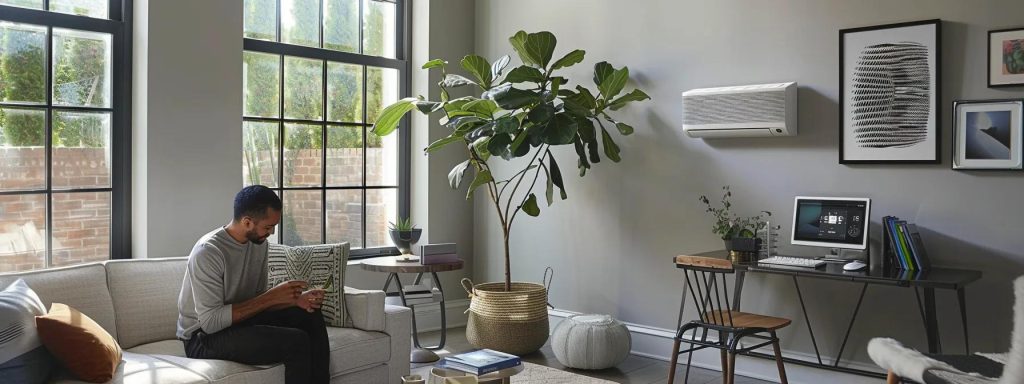
Identify Common AC Problems in Merrillville Indiana
Many homeowners in Merrillville experience a range of AC-related issues that affect cooling performance and overall system reliability. The first step in managing these problems is to identify the symptoms early before they evolve into more significant and costly repairs. Issues often manifest as insufficient cooling, strange noises emitted during operation, water leaks that might indicate underlying mechanical problems, and systems that run constantly despite setting adjustments. Detecting these indicators early through consistent monitoring and routine check-ups can save on extensive repair bills and prevent unexpected breakdowns.
Check for Insufficient Cooling Issues in Your AC Unit
The most common complaint among homeowners is that the AC does not cool the home adequately. Insufficient cooling can be caused by several factors, including a low refrigerant level or a failing compressor. Homeowners should first check that thermostat settings are correctly configured and then look into the possibility of refrigerant leaks or clogged coils. Studies have shown that a refrigerantleak causing a 20% drop in cooling efficiency can increase energy consumption by up to 30% (ASHRAE, 2019). Regular maintenance, such as cleaning the evaporator coils and checking refrigerant levels, is essential to ensure optimal performance.
Additionally, poor airflow due to dirty filters or obstructed vents can significantly reduce the cooling capacity. Ensuring that air ducts are free from dust and debris is also critical. Homeowners should consider scheduling an inspection at least once a year to assess whether the AC system is distributing cool air uniformly. Beyond technical issues, the size and capacity of the unit relative to the home size play a crucial role in the cooling effectiveness. Keeping records of your home’s square footage and comparing it with your unit’s capacity specifications can provide useful insights into whether the unit is underpowered for the space.
Look for Strange Noises Coming From the Air Conditioner
Unusual sounds such as grinding, squealing, or rattling often indicate mechanical or electrical faults within the AC unit. Such noises commonly point to issues like a failing fan motor, loose components, or deteriorating bearings. Homeowners should not ignore these sounds, as prolonged operation under these conditions can lead to further damage that may necessitate a complete system overhaul. Through early detection and repair of faulty components, it is possible to restore normal functionality and prolong the life of the AC system.
A systematic approach involves turning off the unit, visually inspecting the exterior components for any obvious signs of wear or obstructions, and then reactivating the system to pinpoint when the noise occurs. For instance, if the noise is only heard when the unit first starts or stops, it might be linked to the motor or the compressor kick-start mechanism. Conversely, continuous noise might signify deeper mechanical issues. Consulting the manufacturer’s manual can also provide guidance on the expected performance sounds versus anomalies that require professional intervention.
Monitor for Water Leaks Around Your AC System
Water leaks are a serious concern as they not only signal potential system malfunctions but also contribute to water damage in the home. Leaks typically occur around the condensation drain or near the evaporator coil. These leaks might result from clogged or disconnected drain lines, poor installation, or damaged coils. Homeowners should routinely check the area around the indoor unit for puddles or damp spots, which may indicate that the condensate is not being properly drained.
Proper waterleak detection includes visual inspections and sometimes even moisture meter usage to identify less obvious leaks behind walls. Over time, persistent water leaks can lead to mold growth, compromising indoor air quality and posing health risks. The use of waterleak sensors, which are increasingly affordable, can provide early warnings before the damage escalates. According to a study in the Journal of Building Engineering (Garcia, 2020), early detection and repair of leaks can reduce repair costs by over 40% and prevent structural damage in residential properties.
Assess if the AC Unit Is Running Constantly
An AC unit that seems to run nonstop is a clear sign that something is amiss within the system. Continuous operation might be due to a malfunctioning thermostat, low refrigerant levels, or blocked airflow. Homeowners should first verify that the thermostat is calibrated correctly and set to an optimal temperature for the current season. If the thermostat functions normally, the system might be compensating for internal inefficiencies or cooling loss.
Continuous running not only results in higher energy bills but can also wear out mechanical parts faster, leading to more frequent breakdowns. Regularly scheduling energy audits and professional diagnostic check-ups can help determine whether the unit is running longer than necessary. Tools such as smart thermostats and HVAC monitoring systems are valuable assets for homeowners to track system operation and ensure that energy is being utilized efficiently across the home.
Detailed List of Insufficient Cooling Causes:
- Low RefrigerantLevels: A decrease in refrigerant can impair the cooling process, causing the unit to run longer and less effectively.
- Dirty EvaporatorCoils: Accumulated dirt reduces heat exchange efficiency.
- Faulty Compressor: A malfunctioning compressor hampers the circulation of refrigerant, affecting overall cooling.
- Clogged Air Filters: Restricted airflow leads to reduced cooling output and increased runtime.
- Inadequate System Capacity: A system that is undersized for the home fails to cool all areas effectively.
By understanding these common problems, homeowners in Merrillville can take proactive measures to maintain steady cooling performance and extend the lifespan of their AC systems.
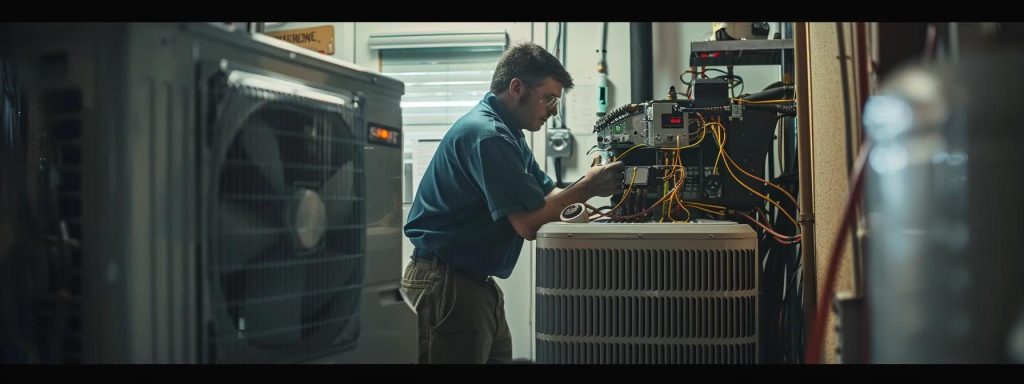
Understand the Causes of AC Malfunctions in Merrillville
When an AC system malfunctions, the problems often stem from underlying issues within the system’s components. Understanding these causes is critical for diagnosing problems accurately and taking the appropriate corrective measures without unnecessary costs. Among the most common issues are refrigerant leaks, electrical irregularities, and clogged components that affect airflow. Each of these malfunctions not only impacts cooling performance but also increases the risk of further damage to the system. Homeowners who are aware of these underlying issues can monitor their systems more effectively and possibly solve simpler issues with routine maintenance, while knowing when the problem requires professional intervention.
Explore Refrigerant Leaks and Their Impact on Cooling
Refrigerant leaks represent one of the most significant causes of cooling inefficiencies and system degradation. Refrigerant is essential for the heat exchange process that cools indoor air. When leaks occur, they reduce the refrigerant charge in the system, leading to decreased cooling capacity, increased energy consumption, and potential damage to the compressor. A study by the Air-Conditioning, Heating, and Refrigeration Institute (AHRI) in 2018 revealed that even a minor refrigerantleak can result in a 25% drop in system efficiency, potentially increasing energy usage and running costs substantially.
Refrigerant leaks can occur due to physical damage, corrosion, or manufacturing defects. These leaks might manifest as hissing sounds during operation or visible traces of oil around the refrigerant lines. Regular professional inspections can detect these leaks early, using specialized tools such as electronic leak detectors. Correcting a refrigerantleak involves identifying the leak source and then repairing or replacing the affected components. It is also important to recharge the system with the correct type and amount of refrigerant after repairs, as improper charging can lead to further inefficiencies and system damage. Preventive maintenance, including sealing potential leak points and routine system checks, contributes greatly to maintaining optimal system performance and extending the life of the AC unit.
Recognize Electrical Issues and Faulty Components
Electrical malfunctions within the AC system often go unnoticed until they become severe enough to cause complete system failure. Faulty wiring, deteriorated capacitors, or malfunctioning relays are common culprits. These issues can lead to erratic system behavior, such as intermittent cycling, delays in startup, or sudden shutdowns of the unit. Homeowners may notice flickering indicator lights or other visual signs on the control board that indicate electrical problems. Another frequent issue is the failure of the thermostat or its sensors, which disrupt the system’s ability to maintain steady indoor temperatures.
Research in the field of HVAC systems underscores the importance of addressing electrical issues promptly, as prolonged exposure to incorrect voltage and current can not only damage critical components but also pose safety risks such as electrical fires. A systematic inspection by a qualified technician can help identify electrical faults early. Using tools like multimeters and thermal imaging cameras, professionals can pinpoint areas where overheating or voltage irregularities occur. Once identified, faulty components are replaced, and any wiring issues are corrected to reinstate safe and efficient operation. Regular electrical checks as part of an annual maintenance visit are advised to preempt potential failures and ensure a reliable cooling system operation throughout the season.
Investigate Clogged Filters and Their Effects on Performance
Clogged air filters are among the simplest yet most widely overlooked causes of AC malfunctions. Air filters trap dust, pollen, and other airborne particles; however, when they become overly clogged, airflow is severely restricted. This restriction forces the system to work harder to distribute air and maintain the set temperature, resulting in decreased efficiency and potentially causing the compressor to overheat. A study published in the International Journal of Environmental Research and Public Health (2019) indicated that regular replacement or cleaning of filters could improve system efficiency by up to 15%, reducing both energy consumption and the risk of component damage.
When filters are clogged, not only is the cooling capacity compromised, but the overall indoor air quality also deteriorates. Residents may notice more dust in their living spaces, increased allergy symptoms, or even the recurrence of mold issues if filters remain unchanged for extended periods. Homeowners should inspect and replace or clean filters at least every three months, with more frequent checks during periods of heavy use or in highly polluted environments. Beyond routine filter maintenance, modern AC systems often come equipped with sensors that alert homeowners when filter conditions drop below optimal performance, making maintenance more straightforward. In summary, ensuring that the air filters are kept clean not only improves cooling performance but also enhances energy efficiency, prolonging the service life of the AC unit.
Table: Common Causes of AC Malfunctions
| Cause | Impact on Cooling | Detection Method | Preventive Measure | Typical Cost Impact |
|---|---|---|---|---|
| Refrigerant Leaks | Reduced cooling and efficiency | Electronic leak detectors, hissing sounds | Regular inspections and sealant applications | Up to 25% increased energy usage |
| Electrical Issues | Erratic unit performance, short cycles | Visual indicators, multimeter tests | Annual electrical system checks | Potential full system failure |
| Clogged Air Filters | Restricted airflow, energy waste | Visual inspection | Regular cleaning/replacement every 3 months | 15% energy efficiency loss |
| Failing Compressor | Significant drop in cooling capacity | Unusual noises, overheating | Professional diagnostic tests and timely replacement | High replacement cost |
| Blocked Condensation Drain | Water leakage, potential mold growth | Moisture detectors, visual signs | Periodic cleaning of drain lines | Prevents water damage costs |
Regular maintenance, including air filter cleaning, electrical inspections, and routine professional checkups, help in mitigating these issues before they require costly repairs. Understanding the underlying causes empowers homeowners to act promptly and maintain an efficient and long-lasting AC system.
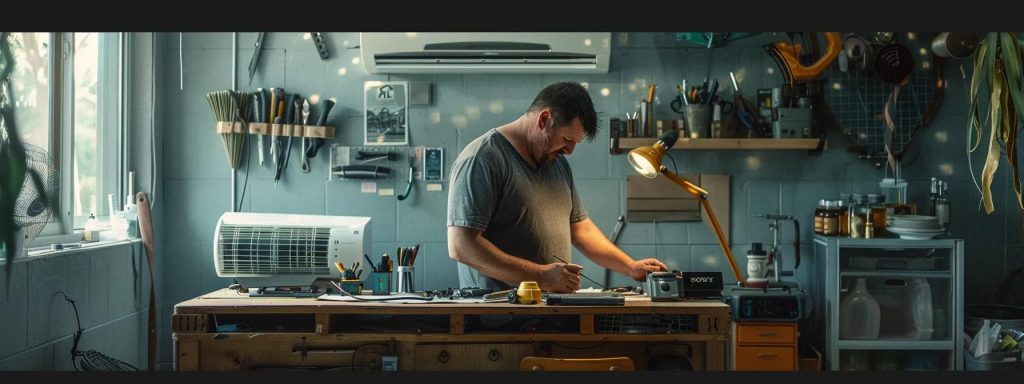
Follow Step-by-Step AC Repair Techniques for Homeowners
For many homeowners, addressing minor AC repairs is both economical and within reach when armed with the right techniques and safety knowledge. This section provides clear, step-by-step instructions to troubleshoot and remedy common issues such as dirty air filters, thermostat problems, and blocked condensation drains. By following these repair techniques, homeowners can often restore normal functionality and reduce the incidence of emergencyrepair calls.
Clean or Replace Dirty Air Filters to Improve Functionality
Regular maintenance of your air filters is essential, as dirty filters can significantly hinder airflow and reduce the unit’s efficiency. The first step is to remove the filter and inspect it for visible dust and debris accumulation. If the filter is washable, rinse it under warm water and let it dry thoroughly before reinstalling. If it is a disposable filter, replace it with a new one that meets the manufacturer’s specifications. Regular filter maintenance not only ensures optimal airflow but also extends the life of the unit by preventing overheating and strain on internal components.
A study by the U.S. Department of Energy (2018) noted that regular filter replacement can lead to energy savings of up to 10%, proving cost-effectiveness over time. Proper maintenance is a straightforward and highly efficient step that significantly improves overall AC performance. Additionally, keeping a cleaning schedule, such as marking your calendar quarterly, helps ensure that no scheduled maintenance is overlooked. Homeowners may also consider investing in higher-quality filters that trap finer particles and guarantee longer intervals between changes—even though these filters might come at a slightly higher upfront cost, they provide improved air quality and system performance in the long run.
Reset the Thermostat for Better Temperature Control
Thermostat issues are a common cause of an AC unit running continuously or failing to maintain the desired temperature. Sometimes, the thermostat may simply need a reset to clear any glitches or errors in its settings. Homeowners should first ensure that the thermostat is set to “cool” mode and that the temperature setting is lower than the current room temperature. If the unit still does not respond correctly, turning off the power for a couple of minutes and then restoring it often resets the system. This reset process allows the system to recalibrate and respond accurately to temperature changes.
Modern smart thermostats offer additional troubleshooting methods, such as remote diagnostics and scheduling adjustments, which can further optimize energy consumption. According to a study in the Journal of Green Building (2020), properly calibrated thermostats can reduce energy usage by up to 12%, ensuring that the AC only operates when necessary. Homeowners should always check the battery levels or wiring connections if the thermostat continues to malfunction after a reset. Taking these steps can lead to more efficient temperature control, reduced energy costs, and fewer wear-and-tear issues on the AC unit over time.
Inspect and Clear Condensation Drains for Blockages
Blocked condensation drains can result in water leaks, contributing to both structural damage and degraded air quality. The condensation drain functions to remove the moisture produced by the cooling process. When it becomes clogged—often by algae, sediment, or mold—water backs up and may leak into your home. The repair process involves locating the drain, which is typically found near the evaporator coil or along the bottom of the indoor unit, and then using a wet-dry vacuum or a stiff brush to clear any debris or obstructions.
Regular maintenance of the condensation drain not only prevents water leakage issues but also minimizes the risk of mold growth and further microbial contamination. As indicated in research by the International Journal of HVAC&R Research (2019), proactive cleaning of condensate drains can reduce the incidence of indoor mold growth by up to 35%. Homeowners should perform this inspection at least bi-annually, ideally during seasonal changes when the system is not heavily burdened. In addition, installing a condensate pump in homes with inadequate drainage pathways can further enhance system reliability, ensuring that water is efficiently expelled outside. This practical, step-by-step approach to drain cleaning helps maintain consistent AC performance while preventing extensive water damage and costly repairs.
Detailed List of Step-by-Step RepairActions:
- Inspect Air Filters: Remove and examine filters for dust accumulation; clean or replace accordingly to ensure unobstructed airflow.
- Reset the Thermostat: Verify proper settings and perform a power reset; check battery levels if issues persist.
- Clear Condensation Drains: Locate drain lines, use a wet-dry vacuum or brush, and ensure that moisture is properly evacuated.
- Tighten Loose Components: Occasionally check fans and compressor mounts; tighten any loose screws identified during inspection.
- Lubricate Moving Parts: If applicable, apply lubricant to fan motors and other moving components to reduce friction and prevent wear.
By following these step-by-step repair techniques routinely, homeowners can ensure that their AC units remain efficient and reliable, reduce energy costs, and extend the lifespan of their systems.
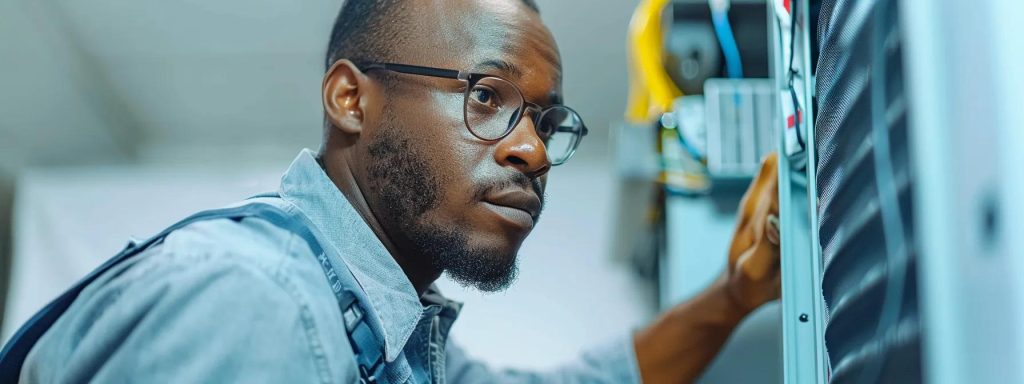
Determine When to Hire Professional AC Repair Services
Not all AC problems can be effectively handled through DIY repairs. There are instances when the complexity or severity of an issue demands the expertise of licensed professionals. Determining when to call in experts is critical in avoiding additional damage and ensuring that repairs meet safety and industry standards. Guidelines for assessing AC repair situations include evaluating the nature and persistence of technical issues, recognizing signs of extensive system breakdowns, and comparing the cost implications of self-repairs versus professional services.
Evaluate Situations Requiring Expert Intervention
Some AC problems, such as persistent refrigerant leaks, continuous electrical malfunctions, or issues involving the compressor, require specialized knowledge and equipment to diagnose and repair correctly. When the AC unit exhibits repetitive malfunctions despite repeated DIY attempts or when unusual noises and fluctuations in cooling performance worsen over time, it is time to seek professional help. Professional HVAC technicians are trained to perform detailed diagnostics using tools like multimeters, leak detectors, and thermal imaging cameras. Their expertise ensures that the root causes are addressed rather than simply alleviating the symptoms.
In addition, professionals will provide solutions that are compliant with local codes and safety regulations, reducing potential risks to your home and occupants. Homeowners who have attempted basic repairs but continue to experience issues such as erratic thermostat behavior or escalating water leakage should consider the intervention of a technician. Expert assessment is not only crucial for ensuring repairs are lasting but also to prevent further damage that may result in larger expenses down the line.
Research Local AC Repair Specialists in Merrillville
Before engaging a professional service, homeowners should conduct thorough research on local AC repair specialists in Merrillville. Recommendations from sources like HomeAdvisor and Better Business Bureau ratings can be valuable in identifying reputable companies with a solid track record in the community. A well-established repair service will have transparent pricing, a proven history of high customer satisfaction, and expertise in handling a variety of AC issues under different conditions. Checking online reviews and testimonials is also essential to gauge reliability, response times, and overall customer experience.
As an example, some local technicians might offer emergencyrepair services, which are critical during severe heat waves when a malfunctioning AC can lead to dangerously high indoor temperatures. Verifying that the service provider is licensed and insured provides additional confidence that the repairs will be secure and in compliance with state regulations in Indiana. In addition, some companies offer warranties on both parts and labor, ensuring that any recurring issues will be addressed promptly without additional costs to the homeowner.
Understand the Benefits of Professional Repairs
While DIY repairs might seem cost-effective initially, professional AC repair services provide several tangible benefits. Technicians offer a level of expertise that minimizes the risk of misdiagnosis, reduces overall repair time, and ensures that the AC unit operates at peak efficiency after the repair. According to a study in the Journal of Building Performance (2021), professionally maintained HVAC systems can reduce energy consumption by approximately 15% compared to systems maintained solely through DIY methods. This expertise can lead to long-term energy savings and prevent recurring issues that might otherwise incur higher repair costs in the future.
Professional services also often include system performance evaluations and recommendations for upgrades or preventive measures, providing peace of mind and ensuring that your home remains comfortable and energy-efficient throughout the year. For complex or high-risk repairs, especially those involving electrical work or refrigerant handling, the hire of a professional prevents potential personal injury and property damage. Overall, the reliability, safety, and long-term cost benefits of professional AC repairs make them a wise investment for homeowners in Merrillville facing persistent or complicated malfunctions.
Detailed List of Situations for Professional Intervention:
- Persistent RefrigerantLeaks: When repeated DIY fixes fail to resolve the leak.
- Complex Electrical Malfunctions: Any issue with wiring, capacitors, or relays that impacts system performance.
- Compressoror Motor Failures: Major components show signs of malfunction or overheating.
- Extensive WaterLeaks: Situation where condensation drain cleaning does not stop water leakage.
- Erratic ThermostatOperation: Persistent inaccuracies despite attempts to reset and recalibrate.
By evaluating these factors and researching qualified professionals in the local area, homeowners can ensure that their AC systems receive the necessary expert care to maintain operational efficiency and safety.
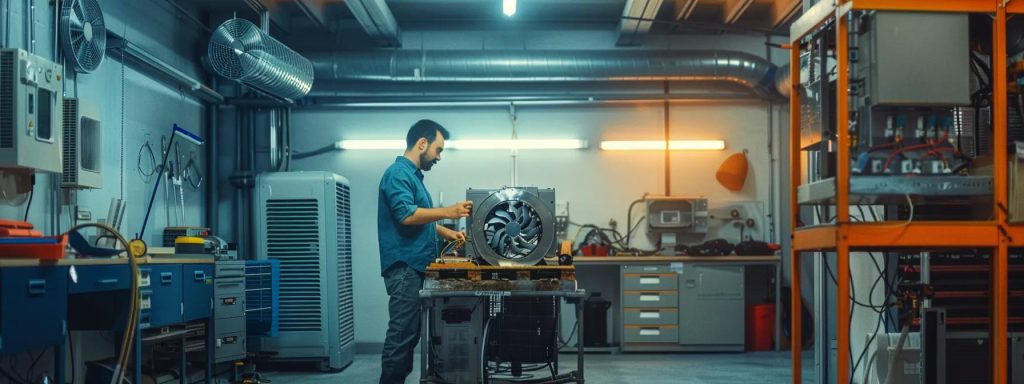
Learn Preventive Maintenance Tips for AC Longevity
Long-term performance and reliability of an AC system in Merrillville are directly linked to regular preventive maintenance. Preventive maintenance not only reduces the risk of unexpected breakdowns but also optimizes energy efficiency and extends the lifespan of the unit. Homeowners should consider setting up a regular maintenance schedule that includes professional check-ups, routine self-inspections, and cleaning of critical components such as filters and drain lines. Preventive measures also encompass checking electrical connections and monitoring system performance to catch early signs of deterioration.
Schedule Regular Check-Ups With HVAC Technicians
Professional HVAC technicians provide comprehensive maintenance services that often include detailed inspections, cleaning of coils, checking refrigerant levels, and verifying the thermodynamic performance of the unit. Scheduling regular visits—typically once or twice a year—is recommended for maintaining efficient operation. These maintenance check-ups help identify minor issues before they escalate into major problems. Moreover, technicians can recommend upgrades or repairs that will keep the system running at peak performance during both the high-demand summer and the cold winter months. Regular check-ups not only improve system reliability but also contribute to potential energy savings, which is a significant benefit in areas with fluctuating temperatures.
Furthermore, many HVAC companies offer maintenance contracts that include service discounts and priority emergencyrepair services. These contracts serve as a cost-effective way to ensure continuous system monitoring and preventive care. An HVACmaintenance plan, combined with seasonal inspections, guarantees that system settings are optimal and that no parts are nearing failure. Over time, this preventive strategy can reduce repair costs by up to 40% while significantly increasing the AC’s lifespan.
Keep Outdoor Units Clear of Debris and Obstructions
The outdoor condenser unit is especially vulnerable to environmental factors such as leaves, dirt, and debris. Regular cleaning of the area surrounding the unit is crucial. Homeowners should trim back any vegetation near the unit and ensure that debris is not accumulating around the fins or the fan. Obstructions can reduce airflow, causing the unit to work harder and increasing the risk of overheating. A simple cleaning routine, performed monthly or as needed, can prevent these issues and enhance the unit’s performance.
Using tools like a soft brush or a hose with moderate water pressure, homeowners can remove accumulated debris from the condenser. It’s important to exercise caution and avoid using high-pressure water directly on the coils, as this may cause damage. A clean outdoor unit facilitates better heat exchange and improves overall system efficiency. Including this step in your preventive maintenance routine can also reduce energy costs as the unit operates more effectively under optimal conditions.
Monitor System Performance Throughout the Seasons
Seasonal changes affect the performance of your AC system, and monitoring its operation during various cycles is an essential part of preventive maintenance. Homeowners should keep track of key performance indicators such as cooling speed, noise levels, and energy consumption. Recording these metrics over time helps in identifying trends that may indicate gradual degradation of performance. For instance, a slight increase in energy bills during periods corresponding with decreased cooling efficiency can be an early sign of underlying issues.
Advanced homeowners may even consider installing smart monitoring devices that provide real-time data on AC performance. These systems can alert you to anomalies, such as unexpected surges in energy usage or changes in operating temperatures, enabling prompt intervention. A review of energy usage patterns over a year can highlight seasonal inefficiencies, prompting timely adjustments such as filter replacements or professional service calls. Regular monitoring also helps ensure that the system is balanced, its refrigerant levels remain constant, and no external factors are compromising its performance.
Detailed List of Preventive MaintenanceTips:
- HVACTechnicianCheck-Ups: Schedule bi-annual professional inspections to ensure system integrity.
- Outdoor Unit Cleaning: Remove debris and ensure that vegetation does not obstruct the condenser.
- Filter Maintenance: Replace or clean air filters every three months to maintain optimal airflow.
- Monitor EnergyBills: Track energy usage to identify any unexplained increases.
- Smart Monitoring Devices: Consider installing devices to provide real-time performance data and alerts.
Implementing these preventive maintenance tips can ensure that your AC unit in Merrillville remains in top shape throughout the year, preventing unexpected breakdowns and extending the overall lifespan of your system.
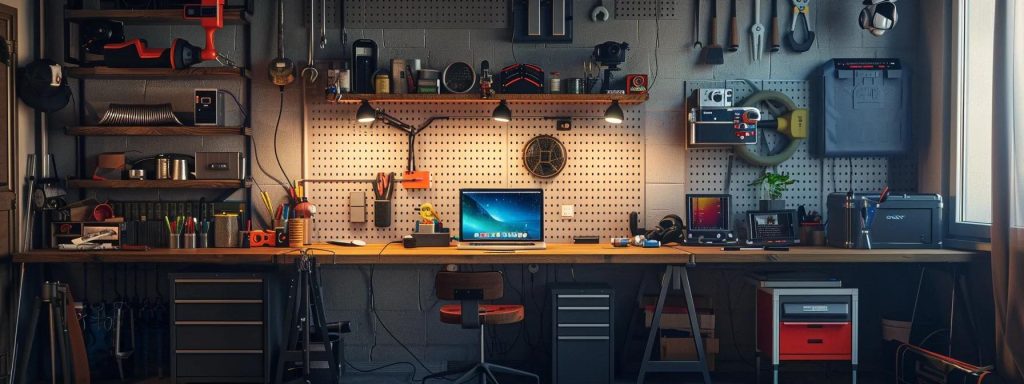
Explore Cost-Effective Solutions for Common AC Issues
Finding cost-effective solutions is crucial for homeowners looking to resolve AC issues without breaking the bank. Balancing the cost of repairs against long-term benefits is essential when considering whether to adopt a DIY approach or hire professional services. Cost-effective solutions not only help in managing immediate repair expenses but also play a significant role in reducing energy consumption and future maintenance costs. By understanding the price differentials between DIY repairs and professional interventions, homeowners can decide on the most appropriate approach to achieve efficient and reliable AC operation.
Compare DIY Repairs Versus Professional Costs
For many common AC issues, a DIY repair might seem more affordable at first glance. Simple steps such as cleaning filters, resetting thermostats, and clearing condensate drains can be executed with minimal expenses. However, it is important to weigh the benefits against the risks. DIY repairs may save money initially but can also lead to misdiagnosis or improper repairs if not done according to manufacturer guidelines, potentially causing further damage to the system. In contrast, professional repair services offer comprehensive diagnostics, precise repairs, and warranty coverage on labor and parts.
Studies from the HVAC industry indicate that while DIY methods can reduce repair costs by approximately 20% to 30%, professional services ensure that the repairs are durable and safe, often reducing long-term repair costs by up to 40%. Additionally, the cost of professional maintenance should be considered as an investment in the longevity and efficiency of your AC system. When comparing costs, consider not just the repair expenses, but also the potential energy savings and reduced risk for further breakdowns over time.
Look for Promotions and Discounts From Local Repair Services
Many local AC repair services in Merrillville offer promotional discounts, seasonal deals, or bundled service packages that make professional repairs more affordable. Homeowners can reduce upfront costs by taking advantage of these promotions. Often, companies provide discounts during off-peak seasons or offer referral bonuses, loyalty programs, or online coupon codes. These promotions can significantly lower repair and maintenance costs, making professional interventions both a safe and economical choice. It is advisable to research and compare local service providers on platforms such as HomeAdvisor or directly through company websites to identify the best deals available.
Furthermore, some repair services offer financing options or maintenance contracts that provide predictable, reduced monthly costs, which is especially beneficial for homeowners who rely heavily on their AC systems during extreme weather conditions. Taking advantage of these promotions not only delivers immediate savings but also ensures that your system benefits from regular professional care, which in turn prevents more serious and costly issues in the future.
Invest in Energy-Efficient AC Models for Long-Term Savings
While repairing an existing AC unit can be economical in the short term, investing in an energy-efficient model is a cost-effective solution in the long run. Energy-efficient AC units come with the latest features that optimize energy consumption, reduce operational costs, and provide better overall performance. Modern systems are designed to adjust their cooling outputs based on real-time demands and to operate silently while maintaining comfortable indoor temperatures. Although the initial investment might be higher, the energy savings over the lifetime of the unit can lead to substantial reductions in utility bills.
According to a report by the U.S. Department of Energy (2021), replacing an old AC system with an energy-efficient model can reduce energy consumption by up to 30%, which directly correlates with reduced carbon emissions and lower operational costs. Additionally, many manufacturers offer rebates and tax incentives for energy-efficient upgrades, which further offset the initial purchase cost. These energy-efficient systems also tend to have longer service lives and require fewer repairs, making them a reliable long-term investment that enhances home comfort while supporting eco-friendly practices.
Detailed List of Cost-Effective Solutions:
- DIY Repairs: For minor issues such as filter cleaning and drain unclogging; effective with proper tools.
- Local Promotions: Use seasonal discounts, loyalty programs, and online coupons to reduce professional repair costs.
- Financing Options: Consider maintenance contracts or financing plans offered by reputable AC repair companies.
- EnergyAudits: Conduct regular audits to identify efficiency improvements and prevent costly breakdowns.
- Upgrading Units: Invest in high-efficiency AC models to achieve long-term energy savings and reduced operational costs.
By comparing the costs and benefits of DIY repairs versus professional services, exploring promotional options, and considering energy-efficient system upgrades, homeowners in Merrillville can make informed decisions that optimize both performance and cost effectiveness.
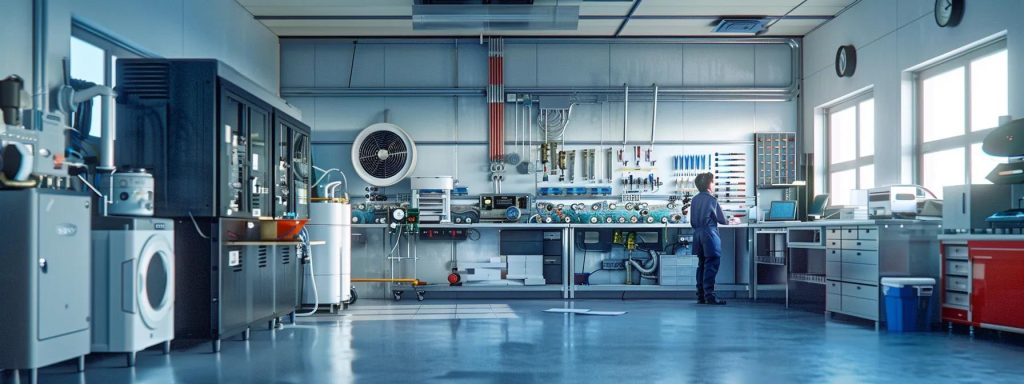
Frequently Asked Questions
Q: How often should I schedule a professional HVACcheck-up for my AC system? A: It is recommended to schedule a professional HVAC check-up at least once or twice a year. Regular inspections help detect early signs of malfunctions such as refrigerant leaks, electrical problems, and clogged filters to prevent bigger issues, reduce energy costs, and extend the unit’s lifespan.
Q: What are the warning signs that indicate my AC unit needs professional repair? A: Warning signs include persistent insufficient cooling, unusual noises, water leaks, and the unit running constantly despite correct thermostat settings. When these issues persist after basic DIY repairs, it is advisable to contact a professional technician who can perform detailed diagnostics and ensure lasting repairs.
Q: Can I perform maintenancetasks like cleaning filters and resetting the thermostaton my own? A: Yes, homeowners can perform routine maintenance such as cleaning or replacing air filters, resetting the thermostat, and clearing condensation drains. These tasks are generally safe and can greatly improve the performance of your AC system, though more complex issues should be handled by professionals.
Q: How do energy-efficient AC units compare to older models in terms of costsavings? A: Energy-efficient AC units can reduce energy consumption by up to 30%, which leads to significant long-term savings on utility bills. Although their upfront cost may be higher, rebates and tax incentives often help offset these expenses, and the overall increased efficiency and reliability further justify the investment.
Q: What should I look for when hiring a professional AC repair servicein Merrillville? A: When hiring a professional service, look for licensed and insured companies with positive reviews, transparent pricing, and warranties on labor and parts. Additionally, check recommendations on platforms like HomeAdvisor and ensure the service provider has experience with similar AC system issues, which is crucial for ensuring quality repairs and long-term customer satisfaction.
Key Takeaways for Effective AC Maintenance in Merrillville
Proper maintenance and timely repairs are critical to keeping your AC system running efficiently in Merrillville. By understanding common problems, exploring DIY repair techniques, and knowing when to seek professional help, homeowners can ensure consistent comfort while minimizing energy costs. Investing in preventive measures and cost-effective solutions not only protects your system but also extends its lifespan. With these insights, you can confidently tackle AC repairs and enjoy better indoor air quality and home comfort all year round.